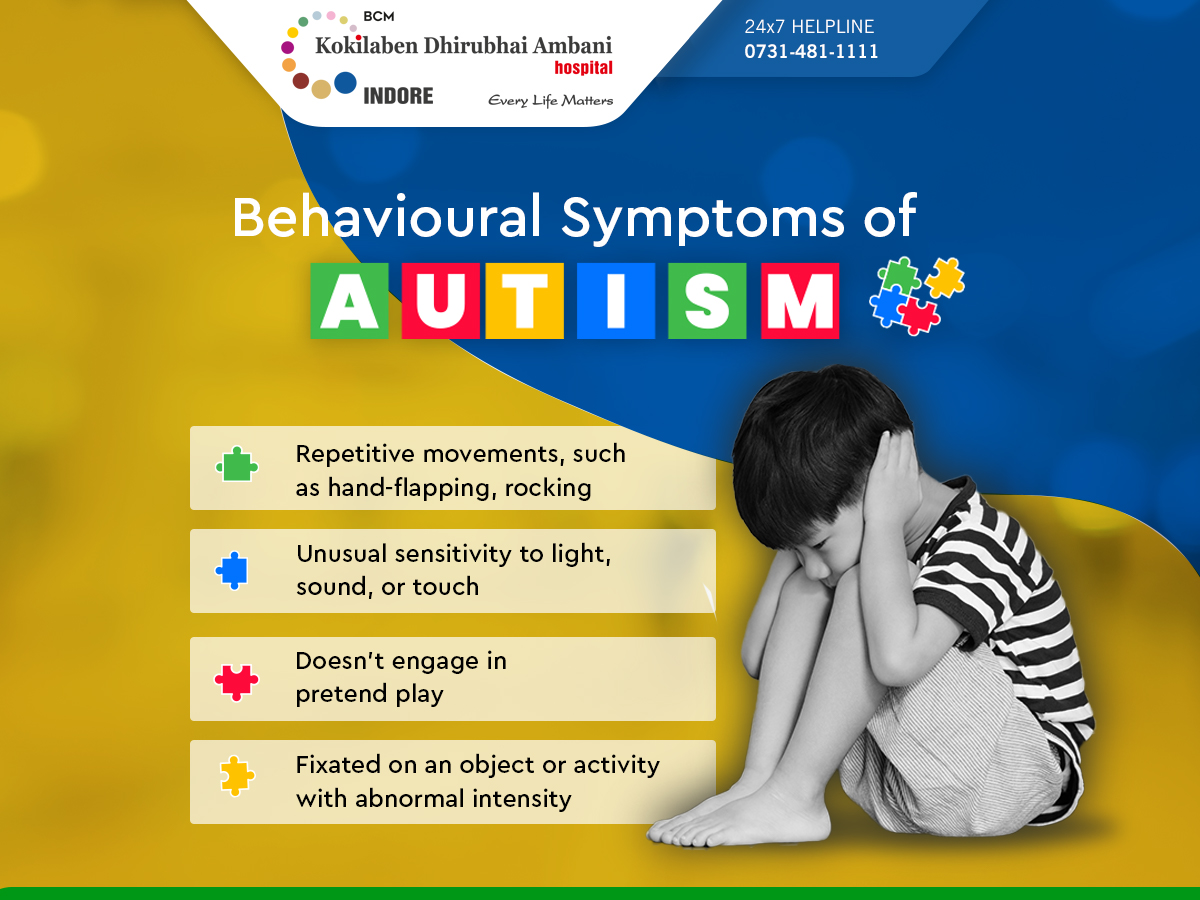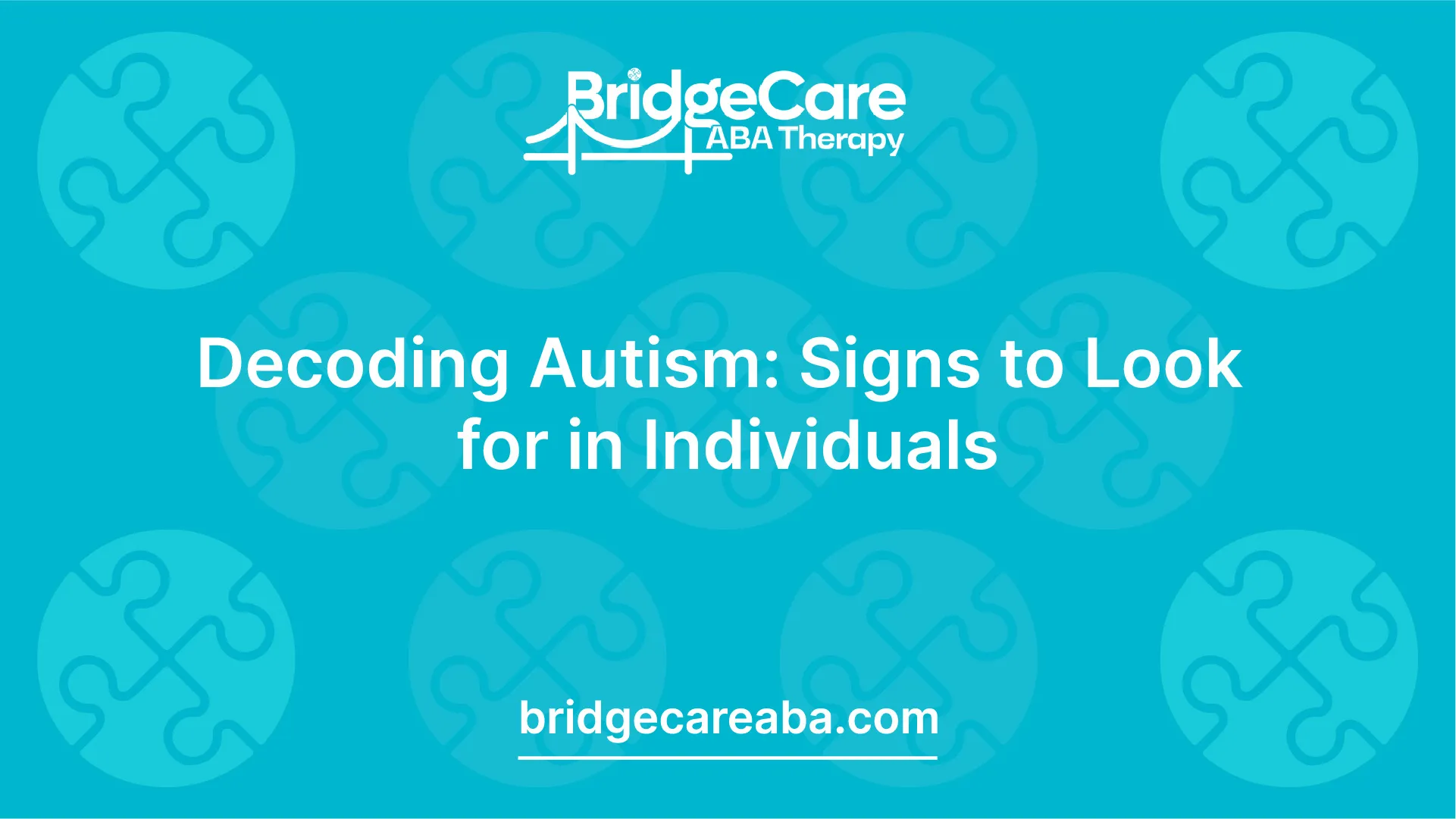What makes an effective Autism Behavioral Therapy method
What makes an effective Autism Behavioral Therapy method
Blog Article
Trick Symptoms And Signs to Identify in Individuals With Behavioral Autism
When you come across a person with behavioral autism, acknowledging essential indications and signs and symptoms is essential. Furthermore, sensory sensitivities can lead to overwhelming experiences.
Obstacles in Social Communications
When you interact with somebody on the autism spectrum, you might observe they struggle with social cues and interaction. These challenges can make social interactions feel frustrating for them.
When they do involve, they might speak regarding their rate of interests in excellent information without noticing if you're interested. Recognizing these challenges can assist you approach communications with compassion and perseverance, promoting a more comfortable atmosphere for both of you.
Difficulty With Verbal and Non-Verbal Communication

Non-verbal interaction can be a lot more challenging. You might see a lack of eye contact or minimal use of gestures, which can make interactions really feel awkward. Faces may not always line up with the conversation, resulting in confusion concerning their sensations. Recognizing these signs is crucial, as it assists you far better assistance and involve with people on the autism spectrum. By recognizing their communication challenges, you can foster a lot more significant connections and give a much more encouraging setting.
Repetitive Habits and Routines
Interaction obstacles typically go along with various other indicators of autism, such as recurring habits and a solid preference for routines. You might notice that people with autism typically involve in details, repeated activities, like hand-flapping, shaking, or repeating phrases. These actions can provide convenience and a sense of control in a frequently frustrating world.
Routines are just as important; many individuals thrive when they comply with an organized timetable. You might find that modifications to these routines can result in significant distress. If they have an everyday ritual of eating morning meal at a particular time or complying with a particular path to institution, any type of disturbance can trigger anxiousness.
Acknowledging these patterns helps you recognize their behavior and offer support. By accommodating their requirement for routine and enabling repetitive actions, you can create a much more comfortable atmosphere that eases their obstacles.
Sensory Sensitivities

Usual Sensory Triggers
Sensory sensitivities can substantially affect day-to-day life for individuals with autism, as particular stimuli often activate overwhelming responses. Common sensory triggers consist of loud sounds, bright lights, and strong scents. You could see that unexpected audios, like sirens or alarms, trigger stress and anxiety or distress. Fluorescent lights in shops can really feel rough and awkward. Structures can additionally play a considerable function; harsh textiles or certain food structures might be excruciating for you. Additionally, crowded places can overwhelm your senses, making it difficult to loosen up or concentrate. Understanding these triggers can assist you handle your setting much better. By recognizing what affects you, you can take actions to decrease pain and improve your daily experiences.
Behavior Actions Discussed
Recognizing your behavior actions to sensory sensitivities is important, as they usually expose how you engage with the world. You might see that particular audios, lights, or structures bewilder you, resulting in anxiety or pain. When encountered with these stimulations, you could take out, cover your ears, or perhaps react boldy. These reactions aren't just quirks; they're your way of coping with overstimulation. You may also locate yourself looking for details sensory experiences, like deep stress or peaceful atmospheres, to aid ground yourself. Recognizing these patterns helps you comprehend your requirements better and can assist exactly how you interact them to others. By recognizing your sensory sensitivities, you can function towards developing an environment that feels extra comfy and manageable for you.
Coping Strategies Introduction
Identifying your sensory level of sensitivities is just the initial step; currently it's time to check out coping techniques that can assist you handle those experiences properly. Start by producing a sensory toolkit customized to your requirements. This might include noise-canceling view publisher site headphones, fidget playthings, or relaxing scents. Establishing a structured routine can also provide predictability, reducing stress and anxiety around sensory overload. When you really feel overwhelmed, take breaks in a quiet area to regroup. Exercising mindfulness methods like deep breathing can assist ground you in the minute. Furthermore, connect your needs with those around you; having supportive close friends and family members can make a big difference. Remember, finding what works best for you may take time, so be patient and open to trying brand-new techniques.
Restricted Rate Of Interests and Focus
While several people establish a vast array of interests, those with autism frequently show limited rate of interests and an intense concentrate on certain topics. You might notice that a person with autism can spend hours delving into their favorite subject, whether it's a particular sort of train, a details flick, or a clinical principle. This intense emphasis isn't simply a leisure activity; it can end up being a central part of their identity and social communications.
You may discover that conversations revolve around these interests, and they might have a hard time to take part in wider subjects. For them, these focused passions offer convenience and a sense of proficiency. While it is necessary to encourage expedition of brand-new subjects, valuing their passions is just as vital. By understanding and recognizing these restricted passions, you can foster a helpful environment where they really feel valued and comprehended, enabling for more significant links and interactions.
Psychological Policy Problems
People with autism often face challenges in emotional regulation, which can be influenced click reference by their intense concentrate on particular rate of interests. You could notice that when a person is deeply taken part in a favored task, they can experience strong emotions, whether enjoyment or disappointment. When things don't go as planned., this strength often makes it tough for them to shift gears or handle their feelings - Aba Therapist Near Me.

Variability in Developmental Landmarks
When it comes to developing turning points, you'll notice that individuals with autism often reveal a wide range of irregularity. You might see a youngster succeed in language skills but struggle with social interactions.
It's crucial to recognize that each individual's trip is one-of-a-kind. Observing these patterns can aid you comprehend their strengths and needs better.
Frequently Asked Questions
How Is Autism Identified in Kid and Grownups?
To detect autism in children and grownups, specialists review actions, interaction skills, and social communications. If an individual meets the requirements for autism spectrum problem., they commonly use standard tests, meetings, and observations to identify.
Exist Different Kinds of Autism Range Disorders?
Yes, there are different kinds of autism spectrum problems, consisting of Asperger's syndrome and prevalent developmental disorder-not otherwise defined. Each kind differs in intensity and characteristics, so understanding these distinctions can assist you far better support individuals with autism.
What Therapies Work for Individuals With Autism?
When thinking about reliable treatments try this website for people with autism, you'll discover choices like Applied Behavior Analysis, speech treatment, and job-related therapy. Each strategy can help enhance interaction, social skills, and day-to-day working customized to private needs.
Can Individuals With Autism Lead Independent Lives?
Yes, individuals with autism can lead independent lives. With the best support, skills training, and sources, you can aid them establish self-sufficiency, handle day-to-day jobs, and flourish in numerous atmospheres, cultivating their self-reliance.
Exactly How Can Family Members Assistance Liked Ones With Autism?
You can sustain your loved ones with autism by producing an organized setting, motivating their passions, exercising persistence, promoting communication, and advertising social abilities. Celebrate their achievements, regardless of just how little, and build a supportive neighborhood.
Although lots of individuals on the autism spectrum can recognize and utilize language, they commonly encounter substantial obstacles with both spoken and non-verbal communication. Recognizing these signs is important, as it helps you better assistance and involve with people on the autism range. You may observe that people with autism usually engage in particular, repetitive activities, like hand-flapping, shaking, or repeating expressions.Sensory level of sensitivities can considerably impact day-to-day life for individuals with autism, as certain stimulations often trigger frustrating responses.When it comes to developmental milestones, you'll see that individuals with autism commonly show a large variety of variability.
Report this page